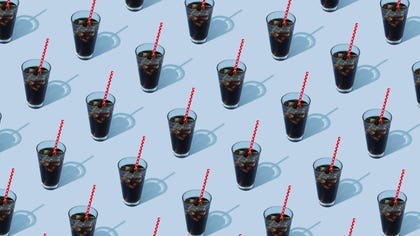
Pepsi is set to introduce its own prebiotic soda in the upcoming fall season, following its acquisition of Poppi for $1.95 billion earlier this year. The new functional soda by PepsiCo will contain 5 grams of cane sugar, 3 grams of prebiotic fiber, and come in cola and cherry vanilla flavors.
The rise in popularity of healthier beverage options, like prebiotic sodas, reflects a shift towards low-sugar alternatives and away from artificial sweeteners. But are these sodas truly healthy? Let’s delve into the insights of experts.
Understanding Prebiotic Soda
Prebiotic drinks are gaining traction in the market with brands like Poppi, Olipop, and Coca-Cola’s Simply Pop offering natural alternatives to traditional sodas. These prebiotic varieties aim to enhance gut health by incorporating ingredients such as agave inulin and chicory root fiber. Despite claims of health benefits, experts remain cautious about the actual impact of these beverages.
Are Prebiotic Sodas Truly Healthy?
Experts have differing views on the healthiness of prebiotic sodas. While some consider them a better choice compared to regular sodas due to reduced sugar content and added fiber, others emphasize the need for more scientific research to validate their health claims.
Finding Healthier Soda Alternatives
When seeking a healthier soda option, experts suggest looking for products with minimal sugar content, adequate fiber, and no artificial additives. Considering prebiotic sodas as occasional supplements rather than substitutes for a fiber-rich diet is recommended.
Creating a Healthy Soda at Home
If store-bought prebiotic sodas don’t meet your health criteria, making your own healthy soda at home is a viable option. By using natural ingredients like soda water, prebiotic fibers, natural sweeteners, citrus juice, and herbs/spices, you can craft a refreshing alternative to commercial sodas.



